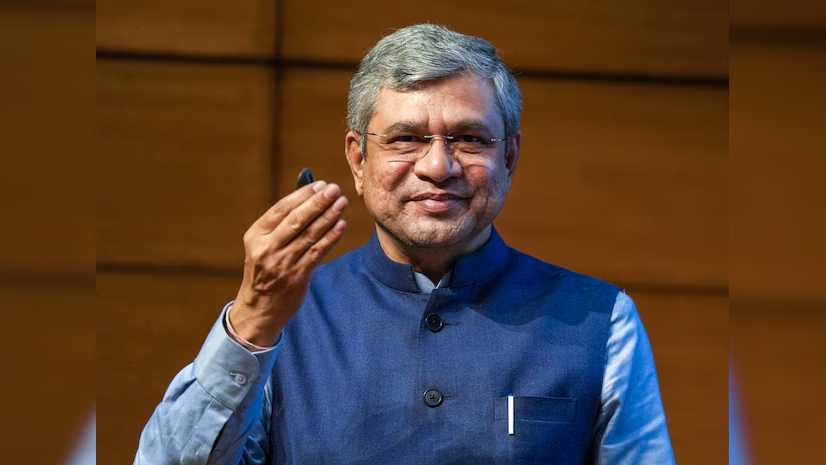The Railway Amendment Bill 2024 was passed by the Lok Sabha on Wednesday, with Railway Minister Ashwini Vaishnaw vehemently rejecting claims that the legislation would lead to the privatisation of Indian Railways. In a debate on the bill, Vaishnaw dismissed the opposition’s concerns as a “fake narrative,” emphasizing that the amendments were intended solely to enhance the functioning and independence of the Railway Board, not to privatise the national carrier.
Key Highlights of the Railway Amendment Bill 2024

The Railway Amendment Bill aims to bring significant reforms in the management structure of Indian Railways by strengthening the Railway Board’s powers and autonomy. The proposed amendments are focused on improving the governance and operational efficiency of the national railway network, ensuring better service delivery and management.
Minister Ashwini Vaishnaw responded to the opposition’s criticism, particularly the allegation that the bill was part of a larger move towards privatisation. He clarified that such claims were without basis, and the bill would not affect the public sector status of Indian Railways.
Minister Ashwini Vaishnaw’s Statement on Privatisation Claims
During the debate, Vaishnaw took a strong stand against the narrative that the bill would pave the way for privatising Indian Railways. He stated, “A fake narrative was set afloat, suggesting that the bill will lead to privatisation. I want to assure the House that these claims are completely false.”
Vaishnaw further pointed out that this “fake narrative” was part of broader political discourse that had been used previously to misinterpret constitutional changes. He added, “The opposition’s baseless claims about privatisation have failed, and now their narrative about this bill will also fall flat.”
Passage of the Railway Amendment Bill
The Railway Amendment Bill 2024 was passed through a voice vote after a discussion in the Lok Sabha, which had been delayed due to disruptions in the previous week. The bill received broad support from the ruling party, which argued that it would improve the operational autonomy and governance of the Railway Board, making Indian Railways more efficient and better equipped to handle modern-day challenges.
Government’s Clarification on Railway Privatisation
Despite ongoing concerns, the government has firmly maintained that there is no agenda to privatise Indian Railways. The bill focuses on enhancing the railway system’s internal structure and does not involve any shifts in ownership or the involvement of private entities in the operational management of the railway network.
Opposition Concerns and Reactions
The opposition parties have voiced strong objections, fearing that the bill could eventually lead to privatisation through indirect means, such as Public-Private Partnerships (PPP) or the involvement of private players in operational aspects. However, the government has repeatedly reassured that the Railways will remain a public sector undertaking.
Conclusion
With the passing of the Railway Amendment Bill 2024, the government is taking steps to modernise Indian Railways and improve its governance structure. While the opposition continues to express concerns, the government has made it clear that the primary goal of the bill is to strengthen the existing system, not to privatise the national carrier.
Keywords for SEO Optimization:
- Railway Amendment Bill 2024
- Indian Railways privatisation
- Ashwini Vaishnaw statement
- Railway Board reforms
- Lok Sabha Railway Bill
- Indian Railways governance
- Opposition concerns privatisation
- Public sector Indian Railways
- Railway Minister Ashwini Vaishnaw
- Railway Bill passed
- Railway reforms India
Frequently Asked Questions (FAQs)
1. What is the Railway Amendment Bill 2024?
The Railway Amendment Bill 2024 aims to enhance the governance and operational efficiency of Indian Railways by strengthening the powers and independence of the Railway Board, ensuring better management and service delivery.
2. Will the Railway Amendment Bill lead to the privatisation of Indian Railways?
No, Railway Minister Ashwini Vaishnaw has clarified that the bill will not lead to privatisation. The government’s focus is on improving the functioning and governance of the Railway Board, not involving private entities in managing Indian Railways.
3. Why did the opposition raise concerns about privatisation?
The opposition has voiced concerns that the bill could eventually pave the way for privatisation through measures like Public-Private Partnerships (PPP). However, the government has denied these claims, asserting that Indian Railways will remain a public sector entity.
4. What changes does the Railway Amendment Bill propose?
The bill seeks to improve the governance structure of Indian Railways by providing greater autonomy to the Railway Board. It aims to streamline operations, boost efficiency, and enhance service delivery for passengers.
5. Was the Railway Amendment Bill passed in the Lok Sabha?
Yes, the Railway Amendment Bill 2024 was passed in the Lok Sabha following a debate. It received support from the ruling party, and the government emphasized that the bill focuses on internal reforms rather than privatisation.
6. How will the Railway Amendment Bill impact Indian Railways?
The bill is designed to improve the operational autonomy of the Railway Board, making Indian Railways more efficient and responsive to modern challenges. It does not propose privatisation or involvement of private companies in core railway operations.
7. What has been the government’s response to the privatisation claims?
The government, through Ashwini Vaishnaw, has strongly rejected the idea that the bill is a step toward privatisation. The minister emphasized that the bill is about strengthening the public sector, not transferring control to private entities.
8. When was the Railway Amendment Bill passed?
The Railway Amendment Bill 2024 was passed in the Lok Sabha on Wednesday, following a debate and voice vote. The bill had been delayed previously due to disruptions in parliamentary proceedings.
For more information: https://watchnewz.com/